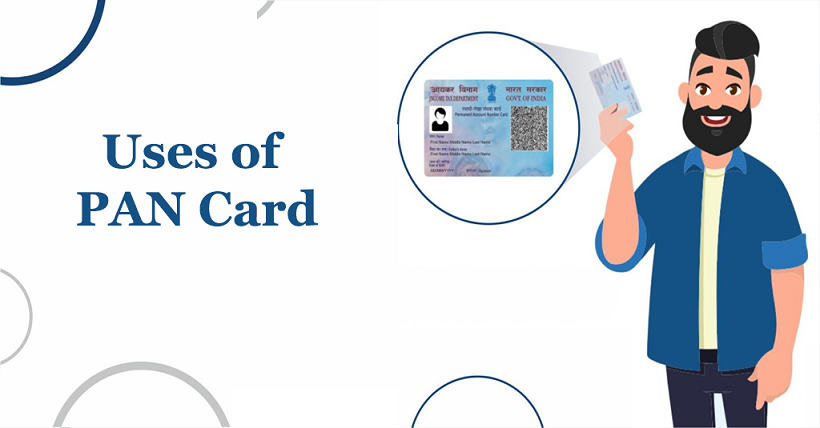The Permanent Account Number (PAN) card in India serves as a crucial document for various financial and taxation-related purposes. Here is some of the primary use of a PAN card in India:
Income Tax Identification: PAN is primarily used as an identification number for income tax purposes. It is mandatory for individuals and entities that earn taxable income to have a PAN card. It helps the government track and verify financial transactions and tax compliance.
Filing Income Tax Returns: PAN is essential for filing income tax returns in India. It is a unique identifier that links all your financial transactions, including income, investments, and taxes paid, making it easier for the government to assess your tax liability.
Opening Bank Accounts: To open a bank account in India, you typically need a PAN card as proof of identity. It is required for savings accounts, fixed deposits, and other financial transactions.
Applying for Loans: When applying for loans, such as personal loans, home loans, or car loans, banks and financial institutions often require a PAN card as part of the documentation process.
Investments: PAN is necessary for making investments in financial instruments like mutual funds, stocks, bonds, and other securities. It helps track and report your investment income for tax purposes.
Property Transactions: PAN is required for property transactions, including buying or selling real estate. It helps the government monitor high-value property transactions and prevents tax evasion.
Opening Demat Accounts: If you want to invest in the stock market, you need a Demat account, and a PAN card is required to open one.
Getting a Credit Card: Most credit card issuers in India require applicants to have a PAN card for credit card applications.
Foreign Exchange Transactions: For foreign exchange transactions, such as sending money abroad or receiving foreign remittances, a PAN card is often necessary.
Applying for Government Subsidies: In some cases, government subsidies, benefits, and welfare programs may require a PAN card for verification and distribution.
Business Transactions: Businesses and entities also need PAN for various financial and taxation-related activities, including GST (Goods and Services Tax) registration, claiming input tax credits, and more.
Know Your Customer (KYC): PAN is an essential part of the KYC process, which is required for various financial services, including insurance policies, mutual funds, and investment accounts.
In summary, the PAN card is a vital document in India, primarily used for taxation and financial transactions. It helps the government track and regulate financial activities and ensures tax compliance among individuals and entities.
